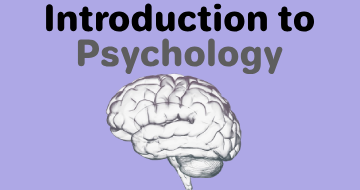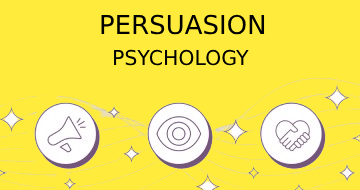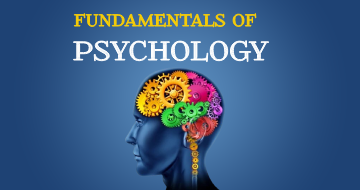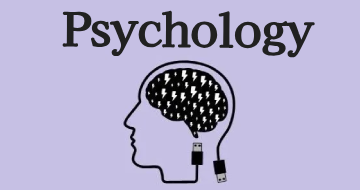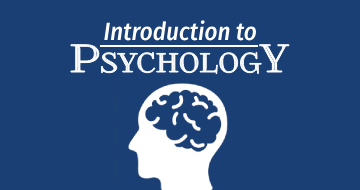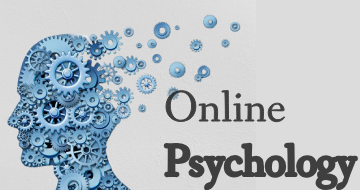IIRF Online > Personal Development > Happiness > Psychology > Diploma Course in Modern Applied Psychology (DiMAP.)
Diploma Course in Modern Applied Psychology (DiMAP.) by Udemy
Uncover the potential of applied psychology to shape minds, influence human behavior, and profoundly impact your world
Course Highlights
- Identify the motivating factors behind all patterns of human behavior.
- Make smarter, more calculated decisions by learning from your past.
- Use your knowledge to solve problems that directly affect people's lives.
- Improve your ability to reason and regulate your emotional responses.
- Make more well-informed judgments that are in line with your priorities.
- Separate behaviour and personality from the heart of human identity.
- Accurately predict how people will act, perceive, reason and behave.
- Build stronger connections and more genuine relationships with people.
- Raise your mind like a philosopher and interpret life's events accurately.
- And much, much more.
Skills you will learn!
Curriculum
25 Topics
Introducing the Diploma in Modern Applied Psychology
Course Structure & Overview
Join the FREE Achology ‘Principles into Practice’ Discussion Group
Course Support and Frequently Asked Questions (FAQs)
Exploring the Greater Questions of Life
Psychological Flexibility & Rigidity
The Purpose of Modern Applied Psychology
A Guide to Developing Critical Thinking
Developing a Healthy Mindset for Reflective Study
The Three Levels of Knowing
Exploring Various Psychological Perspectives
Early History of Psychological Thought
The Basis of Aristotelian Ethics
From Experience to Ideas
The Roots of Enlightenment & Human Awareness
A Reasoning Soul in the Machine
The five Different Levels of Human Experience
Become the Self Which One Truly Is
An Exercise for Existential Thinking
Contemplating the Meaning of Life Part 1
Contemplating the Meaning of Life Part 2
Structuralism: The Beginnings of Psychological Study
Functionalism: The Evolutionary Process of Thought
Psychological Thought: The Seven Primary Schools
Can Psychology be Regarded as an Empirical Science?
21 Topics
Introducing the Behavioral Psychology Section
The 'Monkey See-Monkey Do' Effect
Questions for Self-Reflection
The Behavioral Socialization Process
The Three Main Types of Behavioral Conditioning
Pavlovian Psychology & Classical Conditioning
The Formation of Memories & Behavioral Responses
Associated Learning & Behavioral Responses
Symbolic Representations (The Structure of…)
Operant Conditioning and the Behavior of Organisms
Operant Conditioning: Further Distinctions
Questions for Self-Reflection
Behaviorism: The Three Forms of Social Learning
The Pygmalion Effect (Self Fulfilling Prophecy)
Frankl Logotherapy and Man's Search for Meaning
The Stimulus-Response Quadrant
IKIGAI: Your Reason For Being
Albert Ellis' Fourteen IRRATIONAL Beliefs (Part 1)
Albert Ellis' Fourteen IRRATIONAL Beliefs (Part 2)
What Restrictions are there on the Mind’s Capacity to Learn?
What is the Relationship Between Perception and Behavior?
20 Topics
Psychoanalysis as a Conceptual Model of the World
The Iceberg Model of Sigmund Freud
How Limiting Beliefs Are Constructed
Looking Inside: A Stimulus for Introspection
Freud's ID Ego & Superego
Freud's ID Ego & Superego: Further Distinctions
A Psychoanalytically Focused Discussion
Deconstructing The Psychoanalytically Focused Discussion
Learning to Eliminate the Unconscious Facade
The Johari Window: Model of Personal Insight
Tying Everything Together So Far
Making Wise Choices of Maturity and Character
Self-Esteem - Versus - Self-Concept
The Timeline of Belief Development
The Defence Mechanisms of Anna Freud
An Analysis of Irresponsibility Strategies (Defence Mechanisms)
Relationship Habits: Transference and Counter-Transference
Demonstrating Transference and Countertransference
Neisser's Five Levels of Self-Awareness
The Evaluative Process of Psychoanalysis
27 Topics
Introducing the Developmental Psychology Section
Piaget's Stages of Cognitive Development
Kohlberg's Five Stages of Moral Development
Erikson's Eight Stages of Human Development (Part 1)
Erikson's Eight Stages of Human Development (Part 2)
Questions to Evaluate our Ongoing Development
The H. Eysenck Model of Personality & Development (Part 1)
The H. Eysenck Model of Personality & Development (Part 2)
Questions To Reflect Upon Your Own Personality
Further Distinctions: Transference & Counter-Transference
The 12 Jungian Archetypes/ Ego Types (Part 1)
The 12 Jungian Archetypes/ Ego Types (Part 2)
Visiting Transference & Counter-Transference Once Again
The 12 Jungian Archetypes Workbook
Presuppositions of Developmental Thinkers (Part 1)
Presuppositions of Developmental Thinkers (Part 2)
The Four Domains of Developmental Intelligence
The Kain Ramsay ‘Core Identity’ Model
Core Identity...Then What?
The Collective Unconscious: by Carl Jung
The Six Levels of Conscious Awareness
The Eight Stages of Human Connection
Kubler Ross Change Curve for Growth and Development
The Kubler Ross Change Curve: Further Distinctions
The Multiple Expressions of Intelligence
Fixed - Vs - Growth Mindset
End of Section Four Summary & Wrap-Up
26 Topics
Introduction to the Cognitive School of Thought
Understanding the Human Cognitive Experience
The Four Levels of Human Communication
Dialogue: "A Conversation On Marriage"
The Ladder of Inference
According to the Pattern of Human Behaviour
The Human Experiential Model
Circle of Concern - Versus - Circle of Control
The Karpman ‘Victim’ Drama Triangle
The Purpose of Cognitive Psychology
Albert Ellis' Barriers to Effective Listening
Noam Chomsky's Cognitive Biases
Daniel Kahneman's Cognitive Biases
Six Steps to Facilitate Cognitive Change
Demonstration: Six Steps to Facilitate Cognitive Change
Fifteen Common Cognitive Distortions (Part 1)
Fifteen Common Cognitive Distortions (Part 2)
Investigating Perceptual Positions
Demonstration: Perceptual Positions
The ABC of Cognitive Psychology
Defining the Actual Cause of the Effect
Demonstration: Defining the True Cause of an Effect
The ABCD & E's of CBT (and REBT)
The Socratic Questioning Process
Demonstration: The Socratic Questioning Process
End of Section Five Summary & Wrap-Up
30 Topics
Introducing Section Six: The Humanistic School of Thought
Operation Hearts & Minds
Humanistic Philosophy in Perspective
Eric Fromm: Humanistic Psychoanalysis Part 1
Eric Fromm: Humanistic Psychoanalysis Part 2
Developing an Understanding of the ‘Self’
The Exploration of Self-Concept
The Characteristics of a Fully Functioning Person (Part 1)
The Characteristics of a Fully Functioning Person (Part 2)
Discussion: Becoming A Fully Functioning Person
The Core Conditions for Effective Therapeutic Interventions
Nineteen Propositions Underpinning Carl Rogers' Theory (Part 1)
Nineteen Propositions Underpinning Carl Rogers' Theory Part 2
Nineteen Propositions Underpinning Carl Rogers' Theory Part 3
Abraham Maslow's Hierarchy of Needs
Characteristics of a Self-Actualised Person (Part 1)
Characteristics of a Self-Actualised Person (Part 2)
Adapted Version of Maslow's Hierarchy
Humanistic Thinking: Self-Reflection Questions
The 'Good Enough' Principle
The Relationship Between Goals Fears and Values
Shwartz Theory of Basic Human Values (Part 1)
Shwartz Theory of Basic Human Values (Part 2)
Shwartz Theory of Basic Human Values: Further Distinctions
The Humanistic Human Givens Approach (Part 1)
The Humanistic Human Givens Approach (Part 2)
The Spider Web of Human Values (Part 1)
The Spider Web of Core Human Values (Part 2)
The Achology Core Values Workbook
Evaluation of Humanistic Psychology and Section 6 Summary
27 Topics
Introducing the School of Social Psychology (and Influence)
The Main Questions in Social Psychology
The Social Psychological Perspective
Questions for Psychologically Social Thinking
Socio-Cultural Learning (Part 1)
Socio-Cultural Learning (Part 2)
How Confirmation Bias Works
Exercise: Become A Social Psychologist
The Scales of Hypocrisy and Discrimination
Factors That Determine How We Judge People
The Hierarchy of Discrimination and Intolerance (Part 1)
The Hierarchy of Discrimination and Intolerance (Part 2)
The Choice Theory of William Glasser
An Overview of Attribution Theory
The Scale of Social Conformity
Conformity and Obedience Research
Stanley Milgram's Agency Theory
Different Types of Social Conformity
The ‘Influence of Minority’ Groups
The ‘Elaboration and Likelihood’ Model
In What Ways Are You Socially Influenced?
The Levels of Relatability
The Individual Inside of Social Structure (Part 1)
The Individual Inside of Social Structure (Part 2)
The Purpose of Modern Applied Psychology
Identifying Opportunities for Personal Growth
Evaluating Social Psychology & End of Section Summary
4 Topics
Course Summary & Closing Thoughts
How To Access Your Diploma
Where To Go From Here...
Bonus Lecture: Access Your Diploma
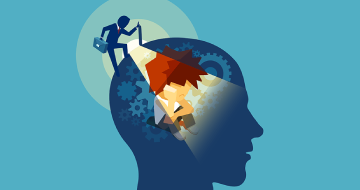
Diploma Course in Modern Applied Psychology (DiMAP.)
